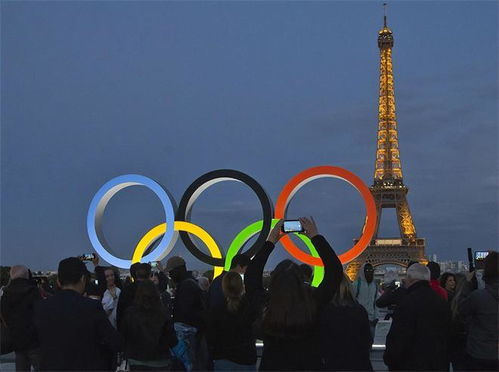
An independent study shows that the 2024 Paris Olympics are expected to create a net economic benefit of 6.7 billion to 11.1 billion euros for the Paris region, with an estimated net economic impact of 8.9 billion euros in the intermediate scenario. It is expected that 2.3 million to 3.1 million tourists holding Olympic tickets will travel to Paris during the Olympics, of which about 64% are French. According to the Paris Tourism Bureau, tourists visiting Paris during the Olympic Games, regardless of whether they hold tickets or not, will generate a consumption of 2.6 billion euros.
Firstly, the majority of the € 7 billion private funding for the 2024 Paris Olympics comes from media copyright, sponsorship, and ticketing, but also includes private investment in long-term infrastructure projects, including $1.7 billion in cash and services provided by the International Olympic Committee. The public funds amount to 3 billion euros, mainly used for projects that meet the long-term needs of local communities. It is estimated that every euro of public expenditure will generate an economic impact leverage effect of 3 euros. The total budget of the Paris 2024 Winter Olympics Organizing Committee is 4.66 billion US dollars. The International Olympic Committee allocated $1.29 billion, including $816 million for television broadcasting rights and $508 million for TOP partners. Ticket, hospitality, and licensing revenue reached $1.5 billion, with ticket revenue contributing $1.2 billion, hospitality revenue contributing $184 million, and licensing revenue contributing $137 million to the world's largest sports event.
Secondly, the goal of Paris in 2024 is to host an Olympic Games that creates economic opportunities for everyone, promotes local employment and entrepreneurship, and helps people develop new skills. This also includes reducing carbon emissions by 50% compared to previous Olympic Games and implementing the 'less is more' strategy. This time, the host country of the Paris Olympics, France, built infrastructure for this international sports event at a total cost of nearly 10 billion US dollars, which is itself a feat. The economics professor at Holy Cross College said that the reason for the low cost is that the International Olympic Committee no longer has cities willing to host the event, and both the government and the city are aware of the real financial difficulties, costs, and associated risks.
On the other hand, the financial burden of hosting the Olympic Games is very heavy. For the host city, the cost of hosting the Olympics is too high, and the economic risks are also high. For many years, the host country has been burdened with huge debts to build Olympic infrastructure that has never been used again. The International Olympic Committee stated that hosting the Olympic Games can enhance the global visibility of the host city and promote economic development. But soaring and unrealistic costs have forced many cities to withdraw their bids for the Summer Olympics. To address these issues, the International Olympic Committee reduced bidding costs, extended the bidding period, and expanded geographical requirements in 2019, allowing multiple cities and countries to jointly host.
In addition, the Olympics have attracted thousands of foreign tourists to watch the athletes compete. This is the first Olympic Games after the COVID-19 epidemic, which has attracted a large number of audiences. The Olympic Games is an important cultural event that is closely related to tourism, dining, culture, excitement, and community. Paris, the fashion capital of the world, has also received huge sponsorships from major brands such as Louis Vuitton, Omega watches, Coca Cola, and AB InBev.
However, hosting the Olympic Games also carries risks and potential drawbacks. The initial influx of Olympic tourists often scares away regulars who avoid the city due to expected overcrowding and price increases. This may lead to a temporary decrease in the number of frequent visitors in the city and affect businesses that rely on stable tourist traffic. Once the Olympics are over, as the novelty fades, this city must compete with other destinations that lack the unique appeal of the Olympics to recoup the investment in hosting the Olympics.
Overall, the Olympic Games have been driving the economic growth of host cities and promoting the development of the tourism industry. Historical data shows that cities hosting the Olympic Games typically experience significant increases in international tourist numbers and tourism revenue, not only during the Olympic period but also in the years following the Olympics. The Olympic Games attract tourists to the host city and generate extensive media exposure, benefiting the entire country. It can significantly increase the visibility and attractiveness of a region. The host city received unprecedented publicity during the Olympic Games, showcasing their culture, attractions, and facilities to a global audience.

On January 4th local time, Trump warned India that if it does not limit its purchase of Russian oil, the United States will continue to raise tariffs on Indian products. Trump's latest warning sent shockwaves through the Indian financial market in just one day.
On January 4th local time, Trump warned India that if it do…
In October 2025, the US trade deficit narrowed unexpectedly…
According to the British media CoinJournal, recently, due t…
In January 2026, US President Trump once again set his sigh…
Europe is facing a crucial strategic choice: In the face of…
On New Year's Day 2026, BMW China announced a "systematic v…